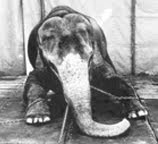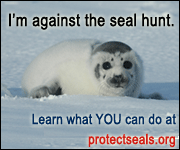 All manner of animals were caged inside and out for sale, from the parakeets and mackaws and sugargliders outside to many more inside. Chicks and ducklings crowded in cages, American porcupines (God knows why we would allow them to be exported here), doves and pigeons crammed together, and cages full of very tiny birds, almost as small as hummingbirds, each cage with some of them dead on the bottom. Also turtles and large fish of many kinds in green, cloudy water. Many of these animals will not be pets, but meals. I take a few pictures. Other tortoises
All manner of animals were caged inside and out for sale, from the parakeets and mackaws and sugargliders outside to many more inside. Chicks and ducklings crowded in cages, American porcupines (God knows why we would allow them to be exported here), doves and pigeons crammed together, and cages full of very tiny birds, almost as small as hummingbirds, each cage with some of them dead on the bottom. Also turtles and large fish of many kinds in green, cloudy water. Many of these animals will not be pets, but meals. I take a few pictures. Other tortoises  languish on the dirty floor in a corner.
languish on the dirty floor in a corner.One odd find: several American porcupines, as identified by Raymond, though as he said, "As to how and why they wound up here, who kows?" All we knew is that someone in the United States is exporting our wildlife to Asia, where what happens to them (if they survive the trip) is anybody's guess. He then asks a man hosing down the cages (including the birds inside) what is in one cage; something little and fuzzy sleeps in a bowl. The man reaches in and dumps four more sugar gliders out of it. They are nocturnal and should be allowed to sleep, but they groggily stir about, one climbing to the cage top try to hide.
In the very back corner a cage holds one of the tiny birds, flying back and forth, for some reason alone in this cage. A brick holds down the mesh flap covering a hole in the top. No one is looking; I move the brick and flap so a hole is made that hopefully the bird will use soon after I'm gone.
hole is made that hopefully the bird will use soon after I'm gone.
 hole is made that hopefully the bird will use soon after I'm gone.
hole is made that hopefully the bird will use soon after I'm gone. He and his lead volunteer Marilyn (sp?) question the store owner about the poor conditions of two kittens in a bare, dirty cage. There is no water. After they talk the owner brings out a bowl of water for the crying kittens. I don't have the heart to look at them for long.
What hit me the hardest was seeing, in one cage all by himself, a half-grown gosling still partly yellow with fuzz, but looking about to sprout feathers. His beak looked worn down, perhaps from pecking at the cage so much, and he quacked desperately at me as he padded back and forth on the wire bottom of his dry, lonely cage. For some reason I instantly name him Gus. His little goose feet had never known water to swim in, his face had never felt sushine or a mother's love. How I wished I could buy him and set him free in some pond, able to paddle about and live in peace as he was meant to. But my bus to Singapore was leaving in less than ten minutes and there was no time to take him anywhere. All I could do was say goodbye to him and hope someone actually DID want him as a pet instead of as dinner. But I know I'm just kidding myself; no one keeps geese as pets in this country. Too late I wonder if perhaps I should have asked Raymond to take him. I also wish I had taken a picture of him. I only got a shot of some ducklings in another cage.
What hit me the hardest was seeing, in one cage all by himself, a half-grown gosling still partly yellow with fuzz, but looking about to sprout feathers. His beak looked worn down, perhaps from pecking at the cage so much, and he quacked desperately at me as he padded back and forth on the wire bottom of his dry, lonely cage. For some reason I instantly name him Gus. His little goose feet had never known water to swim in, his face had never felt sushine or a mother's love. How I wished I could buy him and set him free in some pond, able to paddle about and live in peace as he was meant to. But my bus to Singapore was leaving in less than ten minutes and there was no time to take him anywhere. All I could do was say goodbye to him and hope someone actually DID want him as a pet instead of as dinner. But I know I'm just kidding myself; no one keeps geese as pets in this country. Too late I wonder if perhaps I should have asked Raymond to take him. I also wish I had taken a picture of him. I only got a shot of some ducklings in another cage.

Ducks, chickens, geese and all other birds are raised by their parents, like mammals, and their mothers teach them the ways of the wild as they grow up. All the chicks and other babies in the cages were motherless, and would probably not survive if released on their own. It's no better in the U.S. of course, where birds like that are crammed even tighter in even more horrible conditions (darkness, stifling heat, ammonia-reeking air), but you never see that. What no one sees is easy to ignore and forget about while eating that Thanksgiving dinner or lunch at KFC. Raymond urges me to eat some meat; he thinks I gave up eating flesh too quickly, and that some in moderation is not bad. I nod but I know, especially now after what I've just seen, that I will never eat it again. Goodbye, Gus. I'm sorry I didn't save you. But at least you helped to inspire me to do better next time.





No comments:
Post a Comment